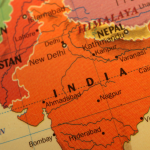Operation Sindoor, launched by the Indian Armed Forces in response to the deadliest terror attack on innocent civilians in the hill station of Pahalgam on April 22, 2025, exemplifies a critical moment in South Asia’s emerging radicalised security prospect. The operation’s precise and calculated kinetic strikes against terror camps deep inside Pakistan and Pakistan-occupied Kashmir signal India’s evolved strategic posture, reflecting the realist imperatives of both power and strategic deterrence.
However, the latter stand contrasted against the U.S. President Donald Trump’s repeated unilateral claims that trade incentives facilitated the subsequent India-Pakistan ceasefire, a compelling tension emerges between realism’s concept of power struggle and liberalism’s faith in cooperation and economic interdependence. This piece examines Operation Sindoor through the prism of the two most debated theories in international relations theory, namely realism, and liberalism, highlighting India’s shifting doctrine of war — from restrained deterrence to assertive cost imposition — amid complex geopolitical dynamics.
The attack on April 22, 2025, that predominantly targeted Hindu tourists was not merely an act of terror by a Pakistan-based terrorist terror group, it was also a major provocation challenging India’s security, national identity, and long-lasting belief in strategic patience. What followed next was a measured response by the Indian armed forces through a demonstrative action, that was named ‘Operation Sindoor’. This operation was not just a tested action like before in the case of surgical strike and Balakot air strike, rather it sought to strike hard on terror networks, at the same time striking Islamabad with massive political and economic costs.
Realism and the Case for Assertive Deterrence
This complex and emerging scenario provides a valuable scope of study for understanding India’s demonstrative operation with the practical projection of two dominant international relations (IR) theories. The realist paradigm, which emphasizes the notion of power, national interest, and state security in anarchic world order, offers a hypnotic framework for interpreting India’s kinetic action through Operation Sindoor. On the other hand, liberalism which stressed cooperation, the role of international institutions, and economic interdependence, found significant expression in the announcements of the president of the United States of America, where he claimed that the ease of tension between India and Pakistan was settled through trade.
Security is one of the major elements that Realists contend is significantly paramount to any state in the world characterised by mistrust and full of threats. Accordingly, it’s the duty of states to stay vigilant and invest and also capable of deterring threats employing both kinetic and non-kinetic actions. After the tragic incident of Uri, India has shifted its focus to a more measured strategic response through strikes against terrorist attacks. Operation Sindoor however, came with more gravitas exemplifying the very realist agenda.
Instead of answering the international call for restraint, India chose to listen to the country’s inner voice of tactical action keeping the importance of national interest, and decided to go for an operation that was designed not just to strike terror camps or its state-funded infrastructure but also the heads behind the tails, who breeds and nurture those terror outfits. By targeting the breeding grounds of terrorism India signalled a shift from strategic restraint to a more demonstrative and assertive posture and ensured a strong cost imposition, reflecting the realist notion that power and security are achieved through influential action.
Liberalism and the case of Interdependence
In contrast to realism’s power-centric and anarchic worldview, comes liberalism with an offer of ensuring peace through frameworks based on cooperation, and economic relationships. The liberal theory of IR believes that individuals and states are capable of understanding mutual benefits which can minimise the possible environment of conflicts or major security rivalry. Employing mechanisms like trade, dialogue-diplomacy, and multilateralism, liberal practitioners contend, states can reduce the possibility of war in international relations.
With this in mind, the repeated solitary statement by U.S. President Donald Trump that he ‘settled’ the India-Pakistan ceasefire through trade, gives out a liberal posture in settling the crisis. Similarly, from a liberal viewpoint, the announcement of trade could create a framework that aligns their interests away from escalation and towards a dialogue fostering an environment of trust through economics. However, India’s recent fact-checking of the unilateral claims of the U.S. President certainly questions Donald Trump’s role in the whole India-Pakistan ceasefire declaration, as a result, the above-mentioned value of liberalism stands in the same doubt as that of Trump’s claim of credit.
In addition to this, liberalism also values the role of international institutions, in this context which can be interpreted through the urges of international mediation from some countries. However, in this regard, India has maintained a clear stance that India’s conflicting issue with Pakistan is a bilateral issue between the two countries, and India will not accept any third-party mediation from any other players, revealing the limitation of the liberal approach using institutions towards conflict management. Simultaneously, erosion of the idea of trust and faith in institutions to act on countries harbouring terrorists forced India towards securing its interests and its citizens against any threat employing methods that it finds suitable as the situation demands.
In conclusion, Operation Sindoor marks a pivotal moment in India’s national security strategy, reflecting a departure from liberal strategies as echoed by international glib remarks in favour of more realist tactics. As a result, the success of Operation Sindoor illustrates the enduring relevance of realism’s power-centric analysis. States’ respect for power, something similar can be summarised from one of the famous statements of Swami Vivekananda, one of India’s great philosophers when he said ‘This world is the greatest gymnasium where we come to make ourselves strong’. Even though, liberalism provides a framework to minimise the possibility of conflict, there remains a state of gap when it comes to acting in matters of mistrust and realities of threat.





